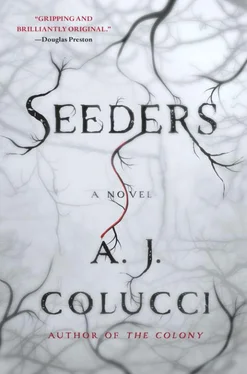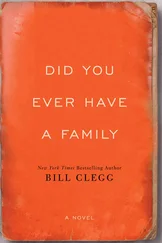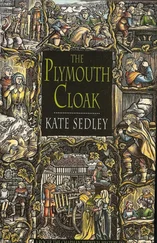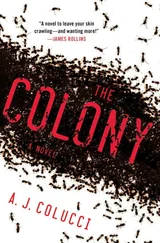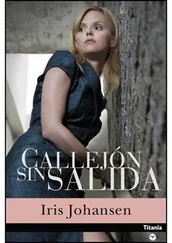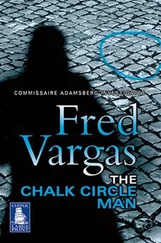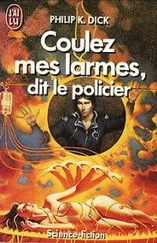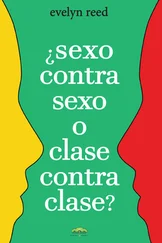“You can take whatever you want, Ginny.”
“Truly? You don’t mind?”
With a heavy sigh, Isabelle picked up the Bible.
“You found the book!”
“I’m not sure,” she said and opened the cover. “There is a section that’s been underlined.”
Ginny rushed to her side and read the passage, squinting. “No mention of the diamond at all. Perhaps it has to do with a garden. There were quite a few gardens around the house years ago. We should have a search.”
“There’s a notebook in my father’s lab, marked ‘Eden something-or-other.’”
Ginny brightened. “What’s in it?”
“I don’t know. Scientific research, but I’ll have a look.”
They both stared at the passage in the Bible again.
“This is far too complicated,” Ginny said.
Isabelle blew a stray hair from her face. “Why don’t you hire a detective or something? There are people who find things. They can do a computer search of my father’s past activities. If he held any bank accounts or maybe sold it on eBay. The diamond could be in a safe-deposit box at some bank in London.”
“No, it’s here. I’m sure of it. I can’t leave this island knowing it’s unprotected.” She was getting upset. “That boat is coming in two weeks, and what if we haven’t found it? I’ll be stuck here myself, searching all alone.”
“I do think it likely George sold it long ago.”
“Nonsense. He wouldn’t leave me something precious in the will, and then sell it. He knew how low my savings had dwindled. I don’t expect you to understand, married to a policeman, with a family and all. You have no idea what it’s like being alone. Not knowing one day to the next, if you’ll be put on the street or shut up in a home.”
Isabelle felt bad for the woman. She poured herself a cup of black tea and filled one for Ginny. “How about we sit for a moment? Put our heads together.”
Ginny brightened at the sight of the Royal Albert tea set. She took the cup and saucer, sniffing the steamy aroma, and said, “It’s good to know we can salvage a bit of civility on this barbaric island.”
Isabelle watched her inspect the bottom of the plate, and then run a finger across the matching tray. “You can have the tea set too.”
“Well, thank you, dear.”
“You know, rather than search all over the house perhaps we could try talking it out.”
“What do you mean?”
“Well, where did George put his valuables? I mean, did he have a safe? Did he ever mention where the diamond was kept? Did you ever see it?”
“No, no, and no. The only time I saw it was around your grandmother’s neck, in a photograph taken years ago. Of course, I asked where he kept it, but he’d only say, ‘In a safe place, my love. I’ll let you know when I’m dead.’”
“That’s an odd thing to say.”
“He was odd. But then, you see why I assumed it would be left to me in the will.” Her eyes shifted suspiciously. “Strange, don’t you think? Mr. Bonacelli is the only person with access to the will all these years. George mysteriously dies just when the lawyer comes to the island, and suddenly the diamond is gone.”
“Seems a stretch of your imagination.”
“Is it? Why was George shooting at the lawyer’s boat? Obviously he was trying to chase him away. He might have known the man was after my diamond.”
“Oh really, Ginny. You think a man like Mr. Bonacelli would do such a thing? I can tell he liked my father very much.”
“Money makes people do evil things. Take that Irish boat captain. I’m sure he lives on a pittance, and he saw George on a regular basis. Perhaps one day he came with a delivery and George, so desperate for company, showed him the priceless gem and unwittingly put the idea in his head. How hard would it be to push an elderly man off a cliff? He’s such a big Irish rogue and no one’s around to witness the act.”
“I see you’ve given this a lot of thought.”
“If I don’t, who will? The police don’t care. Oh, if only we had something to go on besides this blasted riddle.” She took the worn paper from her sweater pocket and flattened it with her hand.
Isabelle glanced at the riddle too. “Does anything in the prose remind you of something George might have said? A special place you two shared?”
She waved a dramatic hand. “There’s nothing. I’ve stared at this bloody piece of paper for hours. It’s all rubbish.”
Isabelle felt a pang of guilt. “So let’s keep looking.”
As Isabelle opened the drawers of the coffee table, Ginny picked up the Bible, stuck the riddle inside, and left the room clutching both to her chest.
* * *
Sean walked briskly through the woods, dragging a long knobby stick, looking back to make sure no one followed him.
He didn’t like when his mother told him what to do and what not to do. For some reason, he felt more independent on the island than at home. Here, he was different, smarter and older. Like the way he could navigate the woods by himself, watching for red markers and staying to the path.
It was dead quiet and he scanned the trail, noticing trees and plants he only read about in books. There were conifers, of course; pine, spruce, and hemlock just like in New York. But there were some broad-leaf varieties that weren’t in his collection, basswood, chokecherry, and speckled alder. It was odd how those trees didn’t have any leaves and it was already June. Their naked branches reached up to the sky like skeletons begging for spring buds. They seemed ominous, the way they loomed over him like giants trying to make him feel small.
Sean took a biscuit from his pocket and took small bites, thinking about how things were now and the way they were before. He was aware of his handicap and loathed it more than anything. He knew his thoughts were babyish. His mind worked like a five-year-old’s, when he was already twelve and should be thinking, speaking, more like Luke.
For years after the accident, Sean desperately tried to talk, but every attempt felt as if someone had snipped a wire connecting brain to voice. After a while, he stopped trying. He gave up and tried to forget the old Sean, laughing and talking a mile a minute. The new Sean felt like an old man. Transgression, the doctor called it. Sean wasn’t an old man; he was turning back into a baby. He worried that someday he’d need diapers. It was frustrating because no one could explain his lack of speech. One specialist called it conversion disorder. Another called it hysteria. His mother called it temporary. His father called it crazy.
Sean looked up and realized he was lost. Somehow he’d wandered off the trail. There were no markers in sight and right away he started to worry. The wooded landscape was a continuous pallet of earthy browns and greens, a repetitive backdrop of trees, rocks, and vines. Sean didn’t know what to do—go back and find the path, or keep walking. Of course he should go back, but he’d spun around so many times he wasn’t sure which way was back. It never occurred to Sean that he might follow the lines made by the walking stick, so he just stood still. After a long moment, he thought that maybe his mother was right. He couldn’t be trusted on his own. The thought made him angry, and he punched himself.
Several minutes passed and Sean got tired of standing, so he sat down to rest on a fallen tree. The sun had moved west, peeking through the tops of leafless branches. He lay back on the log, staring up at the blue sky with sleepy eyes. The mighty wind was playing a game with the trees, blowing them back and forth. The wind picked up and it became a furious battle, but the trees held strong, their branches sharp like cutting knives. Long bony fingers drumming the clouds. Sean smiled, knowing that the wind always lost that game.
Читать дальше
